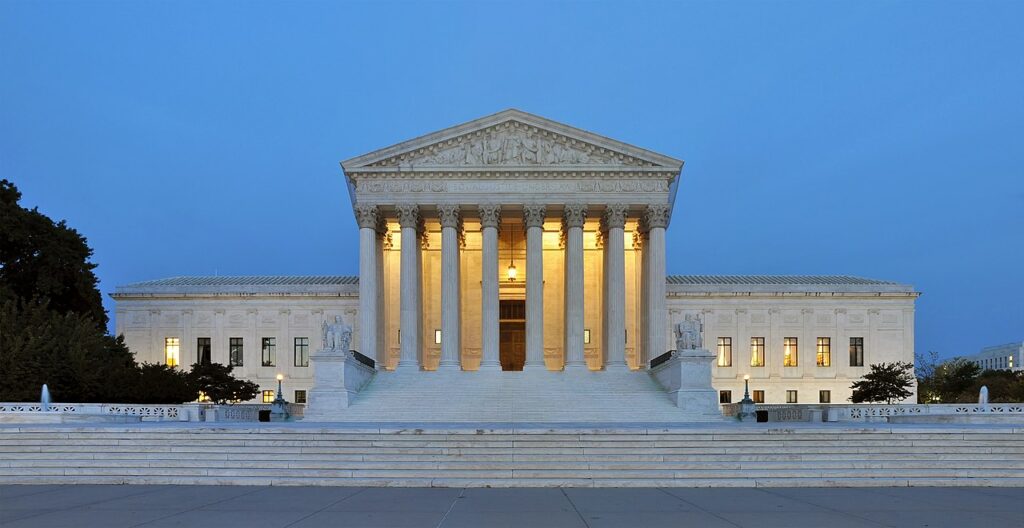Last updated on December 4th, 2020 at 09:20 am
How important is religious liberty in America?
George Washington is not here to answer, but we do not have to guess at what he thought. “The establishment of Civil and Religious Liberty was the Motive which induced me to the Field,” he wrote at the conclusion of the Revolutionary War, and years later in his presidential Farewell Address declared, “Of all the dispositions and habits which lead to political prosperity, Religion and morality are indispensable supports.”
Thomas Jefferson is not here to answer, but the immortal words of his Declaration of Independence are still on the lips of freedom-loving peoples around the world: “We hold these truths to be self-evident, that all men are created equal, that they are endowed by their Creator with certain unalienable Rights, that among these are Life, Liberty and the pursuit of Happiness.”
Neither is John Adams here to answer, but he left no doubt as to his view: “Statesmen… may plan and speculate for Liberty, but it is Religion and Morality alone, which can establish the Principles upon which Freedom can securely stand…. Our constitution was made only for a moral and religious people. It is wholly inadequate to the government of any other.”
Nor is James Madison here to answer, but his words are memorialized in the opening line of the Bill of Rights—“Congress shall make no law respecting an establishment of religion, or prohibiting the free exercise thereof”—and in his presidential inauguration speech in which he pledged to place confidence “in the guardianship and guidance of that Almighty Being… whose blessings have been so conspicuously dispensed to this rising Republic, and to whom we are bound to address our devout gratitude for the past, as well as our fervent supplications and best hopes for the future.”
But if the Founders are not here to answer in person, Amy Coney Barrett is. And answer she did, resoundingly and unequivocally, by casting the decisive vote on November 25 in the 5-4 Diocese of Brooklyn v. Cuomo order blocking New York Governor Andrew Cuomo’s arbitrary limits of 10 or 25 people in houses of worship in designated locations.
Although the decision is a temporary injunction pending review on the merits by lower courts (and possibly eventually the Supreme Court itself), yet the ramifications are stunning. “Wow,” declared the editorial board of the Wall Street Journal. “That word rarely applies to Supreme Court opinions. But it does in our view to the Court’s order on Thanksgiving eve enjoining New York’s Covid-19 order restricting attendance at religious services. The Court is back as a sentinel protecting the free exercise of religion, even in a health emergency,” and “the order shows that new Justice Amy Coney Barrett’s vote was decisive.”
It also occasioned an abrupt turning point. Last May, the Court ruled against a California church’s objection to a 25% capacity limit that was stricter than the limit places on businesses. And in July, the Court upheld Nevada’s 50-person limit on church gatherings while letting casinos, bars, and restaurants operate at 50% capacity. Both cases were 5-4 rulings, with Justice Ruth Bader Ginsberg voting in the majority both times.
But a new day has dawned with Justice Amy Coney Barrett, who is lauded even by the likes of liberal Harvard professor Noah Feldman as “brilliant and conscientious.” For Justice Barrett, the solemn judicial oath she took upon being sworn in—to “support and defend the Constitution of the United States”—was no mere formality. “The Constitution’s meaning is fixed until lawfully changed,” she had previously declared, and “it is illegitimate for the Court to distort either the Constitution or a statute to achieve what it deems to be a preferable result.”
Thus enabled by Justice Barrett, the Supreme Court stated in its ruling against Governor Cuomo’s discriminatory restrictions, “Members of this Court are not public health experts, and we should respect the judgment of those with special expertise and responsibility in this area. But even in a pandemic, the Constitution cannot be put away and forgotten. The restrictions at issue here, by effectively barring many from attending religious services, strike at the very heart of the First Amendment’s guarantee of religious liberty.”
Justice Barrett’s accession to the Supreme Court and the ensuing turnaround victory in the Diocese of Brooklyn v. Cuomo ruling come just when religious liberty in America is under unprecedented attack and when the most pro-life, pro-family, and pro-faith Administration in history is coming to an end. “Americans should welcome the Supreme Court back at the ramparts as a defender of liberty,” declared the Wall Street Journal. Or you might call it a ray of sunshine breaking through ominously dark clouds and urging us to rise up and do all within our power to preserve the religious liberty so prized by the Founders and so essential to preserve the republic they created.
